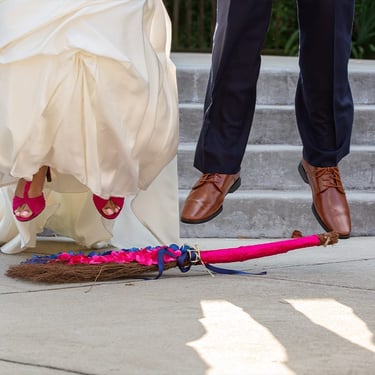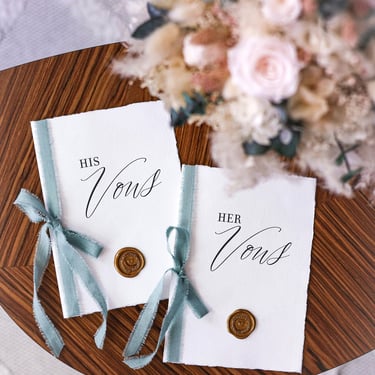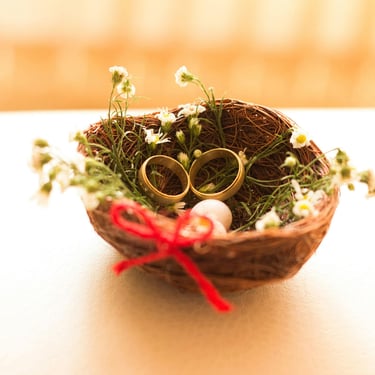
Tips for writing your own vows
Want some help in writing your own vows? I've put together some advice and tips to get you started!
WEDDINGS
4 min read
Writing wedding vows is a beautiful and deeply personal way to express your love and commitment to one another. While it can feel overwhelming at first, it’s actually an opportunity to reflect on your unique relationship and share meaningful words that come from the heart. Here’s a guide with some helpful tips to help couples get started and spark their creativity:
A Guide to Writing Your Own Wedding Vows
Writing your wedding vows is a special moment that allows you to express your love and commitment to your partner. I know it can feel like a daunting task, especially if you’re unsure where to begin. But with some guidance and reflection, you can create vows that are deeply personal, meaningful, and unique to you both.
1. Start with Reflection
Before putting pen to paper (or fingers to keyboard!), take some time to reflect on your relationship. Ask yourselves:
What do you love most about your partner?
Think about the little things and the big things that make you smile, laugh, or feel deeply connected to them.
What promises do you want to make?
Vows are commitments to one another. What are the most important promises you want to make for the future? For example, are they promises of support, understanding, or adventure?
What challenges have you overcome together? Acknowledging the struggles and growth you’ve shared can make your vows more meaningful and grounded in reality.
2. Think About the Tone and Style
Wedding vows can be anything you want them to be. Consider the tone that feels most authentic to you and your partner:
Romantic & Poetic: Write heartfelt, emotional vows that express your love in beautiful, tender language.
Funny & Light-hearted: If humour is a big part of your relationship, feel free to add some wit or funny anecdotes. Just make sure they still reflect the seriousness of the commitment.
Simple & Direct: If you prefer to keep it straightforward, short, and sweet, that works too. Your vows don’t have to be long or flowery to be meaningful.
3. Start with the Basics
Here are a few key elements that can help structure your vows:
I love you because...
This can help you reflect on what makes your partner so special. Try to be specific rather than generic. For example, instead of “I love how kind you are,” say something like, “I love how you always put others before yourself, and how you make everyone feel seen and valued.”
I promise to...
What do you want to commit to in your marriage? These promises might include things like: “I promise to support you in all your dreams” or “I promise to always make time for you, no matter how busy life gets.”
What your future together looks like
Where do you see your marriage going? What kind of partnership do you want to nurture? Speak about the future with optimism and faith.
4. Incorporate Personal Stories or Inside Jokes
Including a shared memory or a meaningful moment in your relationship can make your vows feel more personal and connected. This could be a funny moment, a moment of vulnerability, or a turning point in your relationship. If you have a shared song, a place, or an experience that defined your bond, reference it!
5. Keep It Real
Vows don’t have to be perfect. Be authentic and true to yourselves. It’s okay to get emotional, to stumble on your words, or even to have a laugh in the middle of your vows. Your sincerity will make your vows more beautiful than anything overly rehearsed.
6. Take Your Time—Don’t Rush
Give yourselves plenty of time to write your vows. Some people take months, others only a few days, it’s about what feels right for you. You can even take breaks to think about it and come back when the right words come. If you’re feeling stuck, start by jotting down a list of words or phrases that come to mind when you think about your partner.
7. Draw Inspiration, But Make It Yours
It’s okay to read other people’s vows or even use vows you find online as inspiration. But remember, your vows should be unique to you. Don’t be afraid to tweak the language to reflect your own style and voice.
8. Keep It About Your Relationship—Not About the Wedding Day
Your vows are about what comes after the ceremony. Avoid focusing too much on the details of the wedding day itself, keep your vows grounded in your partnership and the love you have for each other, beyond just that moment.
9. Practice Speaking Them Out Loud
Once you’ve written your vows, read them aloud a few times. This will help you feel more comfortable with them and ensure they flow smoothly when you speak them during the ceremony. It also gives you the opportunity to make adjustments if something doesn’t sound quite right.
10. Consider Writing Them Together
If you’re feeling stuck or want to make it a collaborative experience, you can write your vows together. This can be a fun way to bond and make sure you’re on the same page about your promises. You can even choose to surprise each other with your final vows when it’s time to speak them.
Final Thoughts
Your wedding vows are an opportunity to express your deepest feelings and make a lasting promise to the person you love. Whether you write heartfelt, poetic words or keep things simple and fun, what matters most is that your vows are a true reflection of your love and commitment. Don’t stress about making them perfect, just make them real.
Good luck, and enjoy the process of creating something truly special for the day you marry the love of your life!
Get in Touch
If writing your own vows and creating your own bespoke ceremony is something you’d love, let’s chat. I’d be delighted to hear your ideas (and worries!) and help you shape a wedding day that feels natural, personal, and perfectly you. You can book a no-obligation call with me here.












© Dawn Vincent 2025. All rights reserved.


Follow me
Location
Covering Teesside, North Yorkshire, Northumberland and the North East including Middlesbrough, Newcastle, Sunderland, Alnwick, Darlington, Durham, York, Harrogate, Ripon, Thirsk, Richmond, Northallerton, Leyburn, Scarborough, Whitby and beyond!










